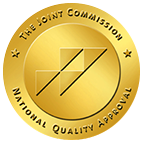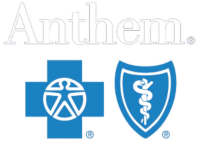
The Dangers of Mixing Lexapro and Alcohol




What Is Lexapro?
Lexapro, also known as escitalopram, is a medication commonly used for the treatment of anxiety and depression. It falls under the category of a selective serotonin reuptake inhibitor (SSRI).
Essentially, this means it works at increasing serotonin in the brain, which helps reduce the symptoms of anxiety and depression. These medications can take a couple of weeks before someone starts noticing the effects.
While taking Lexapro, a person may notice some side effects, including:
- Nausea
- Lethargy
- Troubles sleeping
- Decreased sex drive
- Dry mouth
- Loss of appetite
- Constipation
These side effects are normal in some individuals and not a cause for worry. However, there are some more serious side effects, such as:
- Suicidal tendencies
- Increased aggression
- Worsening depression
- Seizures
- Serotonin syndrome
- Critically low sodium levels
- Vision problems
- Manic episodes
While taking Lexapro acts as an anti-depressant, it can exacerbate symptoms of depression and suicide, and is cause for immediate medical attention. Along with these side effects, Lexapro should not be taken in combination with other antidepressants or blood thinners.
What Is Alcoholism?
Alcoholism falls under the classification of alcohol use disorder (AUD). It reflects someone’s inability to control how much or how often they drink. This leads to adverse reactions in someone’s relationships, work, or health.
It is now classified as a brain disorder and categorized as mild, moderate, or severe. Binge drinking and excessive alcohol use can lead to AUD. People who start drinking at a young age or have a family history of alcohol abuse disorder are more at risk of alcoholism.
In fact, genetics plays a strong link in someone developing AUD. If a person has a parent who had AUD, they have a 60% likelihood of developing the same disorder.
Some of the symptoms that someone has AUD include:
- Drinking more than intended
- Unable to stop drinking
- Relationship troubles
- Withdrawal symptoms
- Drinking while feeling depressed
- Critically low sodium levels
- Vision problems
- Manic episodes
These are not all-encompassing, but people with six or more symptoms qualify as having severe AUD. Those with two to three have a mild disorder. However, addressing AUD at any stage is important in preventing further abuse and disorders.
What are the different types of treatments available for AUD? Some common approaches are inpatient rehabs, detox programs, and behavioral groups.
Mixing Prescription Medication With Alcohol
Most prescriptions come with a clause about drinking alcohol while taking them. Alcohol can also adversely interact with over-the-counter medications or herbal remedies.
There are many different kinds of medications that can interact with alcohol, but a few common medications are ones for:
- Allergy Medicine
- Arthritis Medication
- Anxiety Medication
- Cough Medicine
- Diabetes Medication
- Heartburn Medication
- Cholesterol Medication
- Certain medications used to treat Infections
- Nausea medication
- Seizure medication
- Some Migraine medication
- Certain medications that treat Sleep issues
The best thing someone can do is look at the label on their prescription or talk to a doctor about interactions with alcohol and prescription medications. The dangers of combining medications and alcohol are negative health effects and reactions.
Some of the more side effects of combining alcohol with prescription medications are:
- Vomiting
- Headaches
- Lethargy
- Fainting
- Blood pressure changes
More serious interactions include liver damage or heart problems. It can also exacerbate depression and decrease the beneficial effects of medications. In more severe scenarios, certain medications, such as anti-depressants, can increase someone’s likelihood of an alcohol overdose.
Lexapro and Alcohol
Over 13% of adults have taken antidepressants during a one-month span of time. Approximately 55% of people reported that they drank during the past month – this leads to a large concern of people combining Lexapro and alcohol.
But just how dangerous are the two when combined?
Drinking while on Lexapro can lessen the overall effects of the antidepressant or cause worsening depression. It can also increase anxiety, insomnia, or nausea.
In general, alcohol acts as a depressant. Excessive drinking can exacerbate symptoms of depression and cause suicidal thoughts or tendencies. Unfortunately, the challenging aspect of addressing depression and alcoholism is identifying which one came first.
Sometimes, excessive alcohol use increases depression, which leads people to talk to their doctor about anti-depressants. Other times, someone with depression may turn to alcohol as a means of self-medication.
Lexapro by itself has been shown to be relatively safe and effective for treating mild to severe depression. In some studies, SSRIs are 30% to 50% effective at improving symptoms of major depressive disorder (MDD).
Additionally, they tend to have mild side effects or drug reactions. The most common complaints in studies were fatigue, nausea, somnolence, and dry mouth.
However, when this medication combines with alcohol, one is at a higher risk of developing a co-occurring disorder.
What Is a Co-Occurring Disorder?
Behavioral Health disorders are illnesses that affect one’s mood. These can include disorders such as depression, anxiety, and personality disorders.
Substance abuse disorders are addictions to drugs and alcohol. Addiction has to be significant enough that causes a disruption in someone’s daily life or negative health consequences.
It can also lead to feelings of dependency on the drug(s) or alcohol and someone may show signs of withdrawals. Additionally, people who have a substance abuse disorder are also more prone to having post-traumatic stress disorder (PTSD), anxiety, depression, or attention deficit disorder.
As one can see, depression and alcohol play a key role in each other and it is likely that someone can be dealing with both at one time. This falls under the classification of a co-occurring disorder.
At its core – a co-occurring disorder means someone has a dependency on drugs or alcohol, along with a behavioral health illness. As many as 23 million Americans could be dealing with this debilitating disorder.
Additionally, people with a diagnosis of depression or another mental illness are approximately twice as likely to also have a substance abuse disorder. It’s a tightly knit web that sometimes makes people feel trapped between their depression and reliance on alcohol.
Dual Diagnosis Treatment
Dual diagnosis treatment centers focus on addressing co-occurring disorders. When someone is looking for help with addressing their alcoholism and depression, these treatment centers can help provide individualized treatment plans.
Treatment plans include counseling, rehabilitation, and holistic therapy. Some of the holistic treatments that are included in dual diagnosis therapies are:
As many as one-third of people with major depression have an addiction to alcohol. This can lead to higher usage of abuse of patients who are prescribed Lexapro, but abuse alcohol.
Chemical Imbalances and the Brain
Why are some people more prone to co-occurring disorders like depression and alcohol abuse? It may be a fine line between genetics and the environment.
Some researchers have looked towards chemical imbalances in the brain and someone’s risk of developing substance abuse disorders. One study looked at human serotonin transporter gene polymorphism and mental illnesses.
They also looked at its association with substance use disorders. The researchers found that people had either a long allele or a short allele.
Prior and current research shows that those with the short allele had a higher likelihood of developing depression, eating disorders, PTSD, and substance use disorders.
On the contrary, people with the long allele had a higher risk for obsessive-compulsive disorder. This highlights a critical point.
People with different brain chemistry could be at a higher risk for co-occurring disorders. People who have lower levels of serotonin or dopamine may find themselves using or abusing substances that help give them the euphoria or pleasure associated with these hormones.
Treating Co-Occurring Disorders
Co-occurring disorders, such as depression and alcohol abuse, can lead to feelings of worthless, suicidal thoughts, and worsening depression. In return, this can lead to further substance abuse and misuse of prescription medications.
Many people who deal with depression often use antidepressants, such as Lexapro. However, Lexapro and alcohol can make someone’s symptoms worse and lead to negative health consequences.
If someone is struggling with depression and alcohol, a qualified dual-diagnosis treatment center can help. Contact us today and let one of our qualified staff members talk about the different treatment plans that can benefit you or a loved one.
Why New Method Wellness Is One of the Nation’s Best Dual Diagnosis Treatment Centers
Handpicked by Dr. Phil, New Method Wellness is a premier dual diagnosis addiction treatment center dually accredited by The Joint Commission and CARF International. It has been singled out as one of the best drug and alcohol rehab centers in America, offering a unique 3:1 staff-to-client ratio that pairs every client with two therapists instead of one.
At New Method Wellness, we add another dimension to dual diagnosis treatment, and that is the integration of holistic therapy, such as massage/acupuncture therapy, equine therapy, and art therapy. As addiction therapists and substance abuse counselors work with clients to treat the substance use disorder and the co-occurring illness associated with it, holistic therapy adds meaning to life after treatment and sustains long-term recovery. Our 3:1 staff-to-client ratio ensures client success after treatment, as evidenced by our Extended Aftercare program.
For more information about New Method Wellness’s treatment programs, call (866) 951-1824
TAKE THE FIRST STEP
From all of us at New Method Wellness co-occurring treatment center, we wish you peace and serenity in knowing that you or your loved one will get the necessary help.
ACCREDITED BY:




